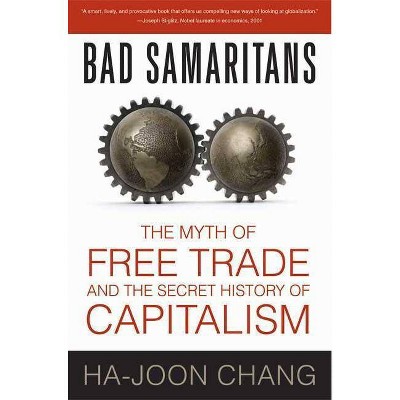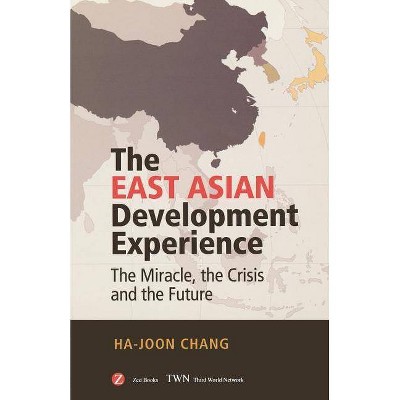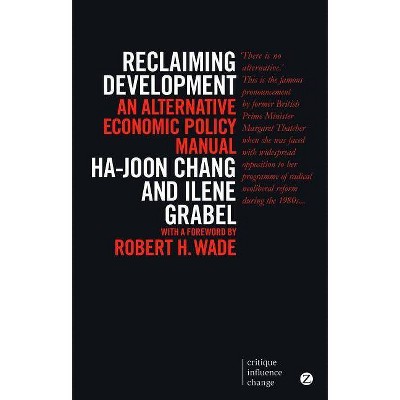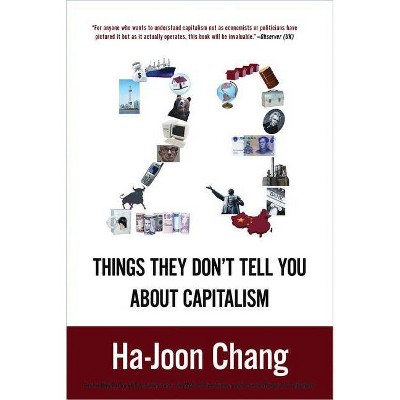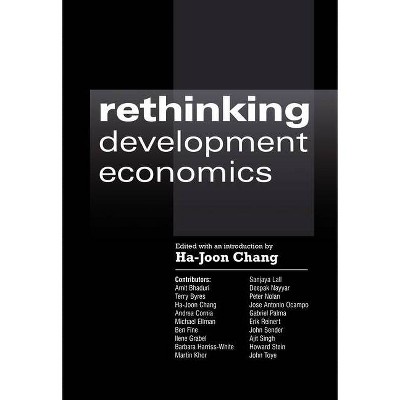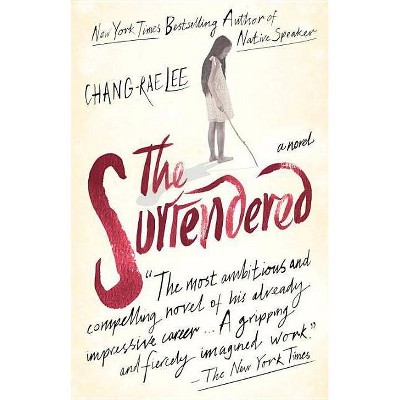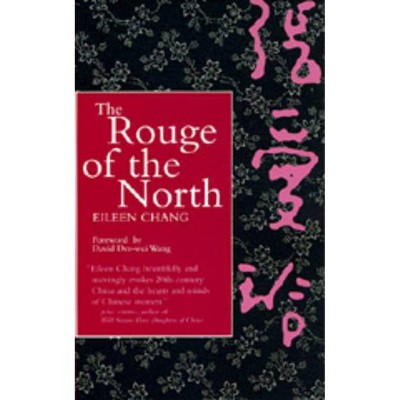Kicking Away the Ladder - by Ha-Joon Chang (Paperback)
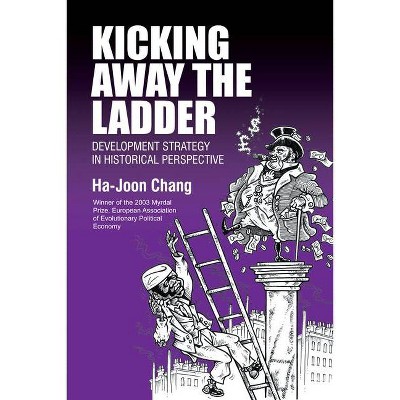
Similar Products
Products of same category from the store
AllProduct info
<p/><br></br><p><b> About the Book </b></p></br></br><p>Exposes the attempts by developed countries to 'kick away the ladder' from developing countries trying to join the economic elite.</p><p/><br></br><p><b> Book Synopsis </b></p></br></br><p>How did the rich countries really become rich? In this provocative study, Ha-Joon Chang examines the great pressure on developing countries from the developed world to adopt certain 'good policies' and 'good institutions', seen today as necessary for economic development. Adopting a historical approach, Dr Chang finds that the economic evolution of now-developed countries differed dramatically from the procedures that they now recommend to poorer nations. His conclusions are compelling and disturbing: that developed countries are attempting to 'kick away the ladder' with which they have climbed to the top, thereby preventing developing counties from adopting policies and institutions that they themselves have used. This book is the winner of the 2003 Myrdal Prize, European Association of Evolutionary Political Economy. <br /> <br /> For more information please see the book website: http: //kickingawaytheladder.anthempressblog.com</p><p/><br></br><p><b> From the Back Cover </b></p></br></br>'The most important book about the world economy to be published in years.' Prospect 'This book is a joy: a fantastically useful teaching aid... a very necessary historical conscience in an age of amnesia.' The Business Economist 'A provocative critique of mainstream economists' sermons directed to developing countries... It demands attention.' Charles Kindleberger, Emeritus Professor of Economics, MIT 'A scholarly tour-de-force... essential reading for industrial policy-makers in the twenty-first century.' Lance Taylor, Professor of Economics, New School University '...a lively, knowledgeable and original contribution to international political economy.' John Toye, Professor of Economics, University of Oxford '...an original and immensely valuable contribution to current debates on development.' Peter Evans, Professor of Sociology, University of California, Berkeley How did the rich countries really become rich? In this provocative study, Ha-Joon Chang examines the great pressure on developing countries from the developed world to adopt certain 'good policies' and 'good institutions', seen today as necessary for economic development. Adopting an historical approach, Dr Chang finds that the economic evolution of now-developed countries differed dramatically from the procedures that they now recommend to poorer nations. His conclusions are compelling and disturbing: that developed countries are attempting to 'kick away the ladder' by which they have climbed to the top, thereby preventing developing countries from adopting policies and institutions that they themselves used. <BR><p/><br></br><p><b> Review Quotes </b></p></br></br><br><p>'Highly relevant to today's debates about the role of policies and institutions in development as well as the role of government in general... It is a great contribution, not least for its historical approach, and will continue to influence the debate on development.' --Seb Bytyçi, 'ID: International Dialogue, A Multidisciplinary Journal of World Affairs'</p><br><br><p>'The most important book about the world economy to be published in years.' --'Prospect'</p><br><br><p>'This book is a joy: a fantastically useful teaching aid...a very necessary historical conscience in an age of amnesia.' --'The Business Economist'</p><br><br><p>'This is an intriguing book that raises important issues. Recommended.' --J. M. Nowakowski, Muskingum College, in 'Choice'</p><br><p/><br></br><p><b> About the Author </b></p></br></br><p>Ha-Joon Chang teaches at the Faculty of Economics and Politics, University of Cambridge.</p>
Price History
Cheapest price in the interval: 24.49 on October 28, 2021
Most expensive price in the interval: 24.49 on February 4, 2022
Price Archive shows prices from various stores, lets you see history and find the cheapest. There is no actual sale on the website. For all support, inquiry and suggestion messagescommunication@pricearchive.us
